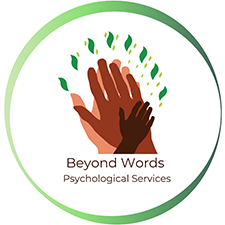It’s Time to Expand the Definition of “Helpers”
After tragic events such the two mass shootings in El Paso and Dayton this past weekend (and the numerous shootings prior), many parents are seeking the right words to reassure their children that they will be safe. It can feel impossible to find these words amidst our own intense emotions, but Mr. Fred Rogers’ wise advice about noticing the “helpers” has always seemed to instill a sense of comfort. It soothes us to witness the outpouring of compassion and support from first responders and everyday people after devastating events occur – it reinforces our belief that good will triumph over evil.
Many of us might consider ourselves helpers in the aftermath of tragedy. We may donate blood, send supplies, make donations, or offer our time and expertise to support the survivors, their loved ones, and the community. It gives us some semblance of control to feel like we have offered something positive in an effort to heal the negative.
Until it happens again. And again. And again. A sense of helplessness and resignation takes over in our darkest moments, the belief that we can do nothing stop the next tragedy from occurring. We become resigned to an endless cycle of reaction, where tragedy is viewed as unavoidable and our role in helping others heal in the aftermath feels minimal. It becomes a self-fulfilling prophecy in which we convince ourselves we have no other choice but to wait, react with all of the compassion we can muster, and then wait to react again.
What if being a “helper” could be more? What if it wasn’t contained within the timeframe of aftermath? What if we worked toward preventing tragedy with same fervor in which we reacted to it?
We can’t save the world, but we can choose to care as much about other people before tragedy occurs as we do afterwards. Imagine a world where we reach out to people in our community to offer support because we want to improve the lives of the living, not just support those who are grieving. A world where we donate to causes we believe in every month or donate blood regularly, instead of only in times of crisis. A world where we volunteer our time and expertise to enhance the lives of those around us, instead of trying to heal those who have experienced devastating loss. A world where we make it a priority to vote for what we believe in and contact government officials to give explicit feedback, both positive and negative. A world where we take a moment to ask how we can help someone who is clearly suffering, instead of pretending we don’t see them as we rush off in avoidance. A world where we choose to report concerning words and behaviors before they become massively permanent actions. A world where being a hashtag is not the only way to make people care, because we make it our passion to show every person we encounter that their lives matter while they are living.
We all have the power to be proactive “helpers” in a multitude of ways. This is the message we need to teach our children, by perceiving our ability to stop devastation before it occurs with the same sense of urgency we feel in its wake.
